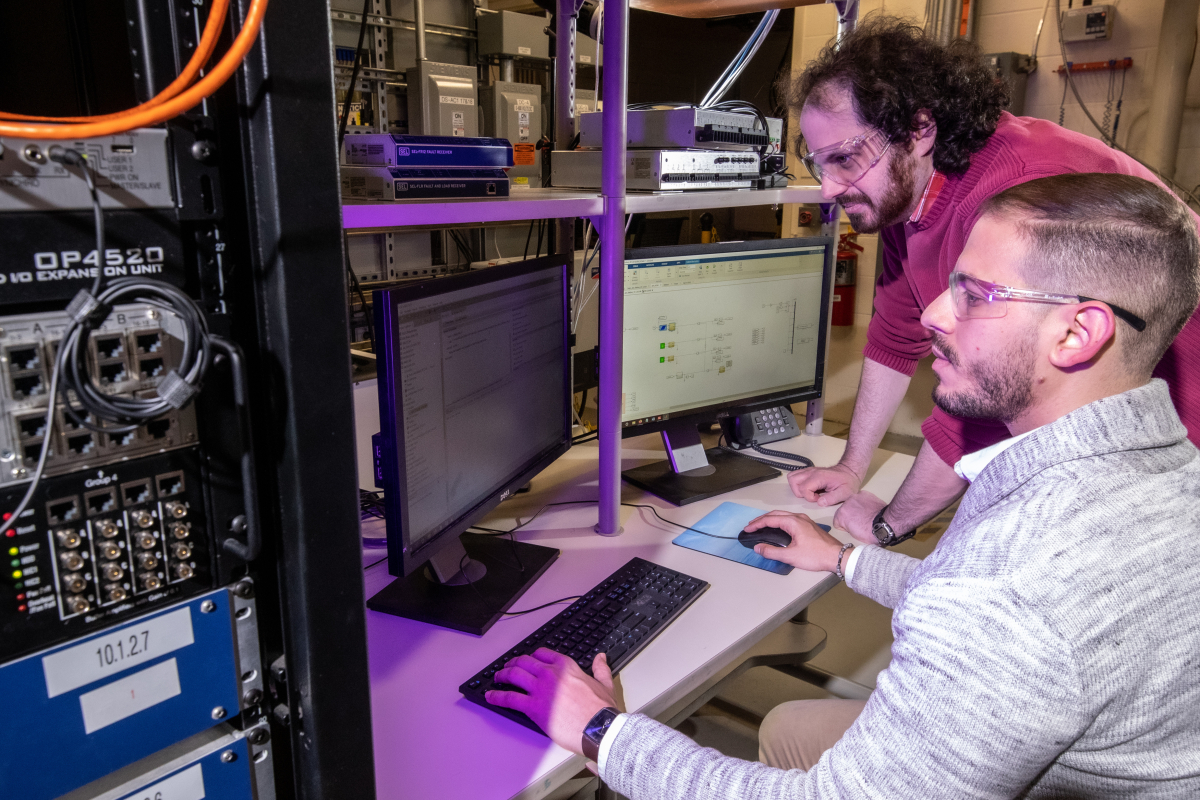Our climate is close to a tipping point where we will lose the ability to reverse the warming that has occurred from our cumulative carbon emissions over the past 50 to 100 years. Any measures that allow carbon emissions to continue doom the world to catastrophe.
In addition to greenhouse gases such as carbon dioxide, emissions also release toxic air pollutants, including carbon monoxide, nitrogen dioxide and sulphur dioxide. Suggested mitigation solutions include:
1) Planting three billion trees by 2030 — even those additional trees could not counter on-going carbon emissions, but since trees sequester little carbon before they approach maturity, it would be decades before they could start drawing down the excess carbon already in the atmosphere.
2) The carbon tax, amounting to annual increases of only 3.3 cents/litre, has no effect on the driving habits of Canadians, while industry increases are much higher. Carbon tax rebates for low-income Canadians exceed what they pay, so ‘axing the tax’ would hurt those low-income families more, demonstrating that Conservative claims amount to brazen politicking. The only other benefit of the tax is that it might convince some to purchase an EV.
3) Carbon pricing has also been ineffective. While the government claim that it helped reduce carbon emissions by eight per cent was deceptive, based on a one-time outlier data point amid the pandemic in 2020, when industry and emissions had shut down for several months globally.
4) Similarly, ‘cap and trade’ simply shifts the blame for emissions elsewhere and does little to diminish emissions.
5) Carbon capture and storage (CCS) has minor potential, but fails because there would need to be thousands of these facilities, each costing many millions and years to construct, for even a small reduction in overall carbon emissions of 730 MT (Canada) and 40 GT (globally). Most have been used to pump captured CO2 emissions below oil and gas wells to improve efficiency, leading to more emissions.
6) Direct atmospheric capture (DAC) cannot offset current emissions and would have to operate for many decades to make any measurable difference in atmospheric CO.2
7) Nuclear energy is extremely costly and takes many years to construct, while questions remain about safe storage of radioactive by-products.
8) Geoengineering, involving spraying the upper atmosphere with sulfate particles to reduce incoming solar radiation, is an extremely risky proposition with no reversal possible once implemented. Therefore, it should not be attempted.
9) Changing the psychological attitudes of people that have developed over thousands of years is unlikely to have any benefit in the near future.
10) We are already overshooting Earth’s limits to growth, along with rapid population growth that limits our ability to grow food.
All of the suggested mitigations above would have miniscule impact on countering carbon emissions, while simply allowing the fossil fuel industry to continue business as usual. This is a blatant undermining of attempts to reduce carbon emissions.
Increased heat in our warming climate leads to storm and wildfire deaths and billions of dollars in infrastructure damage. Governments and media tend to under-estimate the negative impacts of carbon emissions on health, with millions of annual deaths worldwide from heat stroke, melanoma, and lung cancer and asthma from increased aerosols. The warming climate also lessens our ability to grow healthy foods.
The way forward is through the development of clean renewable energy systems in staged, small microgrids, utilizing the free energy of nature’s wind, solar, geothermal, hydroelectric, and ocean wave and current systems.
As industries convert to cheaper electric energy, renewables take the lead on energy production using start-up resources that would have otherwise gone to fossil fuels. Municipal and county governments should encourage the development of microgrids. These can be as small as a single-family dwelling such as Art Hunter developed in Ottawa, or the size of a municipality, all producing energy with no harmful emissions. Renewable components can also be produced to be 95 per cent recyclable.
Federal and provincial governments need to be onside, curtailing all subsidies for fossil fuels, while providing incentives to small businesses developing clean renewable energy and upgrading major electric grids. Moreover, governments need to encourage use of public transit, providing low-cost fares for low-income families and on-demand transit for low density areas.
Finally, the Climate-Aligned Finance Act (CAFA, Bill S-243) sponsored by Senator Rosa Galvez would discourage investment in fossil fuels, an important step to improve the well-being of future generations.
The need to address these issues is urgent.
Geoff Strong is an atmospheric/climate scientist by profession, a Fellow of and former national President of the Canadian Meteorological & Oceanographic Society (CMOS, 2006-07), and has received several awards from that society during his career that began in 1963.
Richard van der Jagt is a retired hematologist /oncologist with a long-standing interest in the links between an adverse environment and exposure to environmental toxins and adverse health outcomes. He is adjunct prof of medicine at U of Ottawa.







Comments
“Our climate is close to a tipping point where we will lose the ability to reverse the warming that has occurred from our cumulative carbon emissions over the past 50 to 100 years.”
We have already lost the ability to reverse warming-to-date. And, I believe it is the case that the climate has not yet stabilized around current GHG levels; thus, locked-in warming will further increase, until stability is attained, even if we magically brought emissions to zero today.
“Suggested mitigation solutions include:”
Perhaps I’m misunderstanding the authors’ intent here, but it seems that most of the listed solutions are, in fact, failures as solutions. Maybe that was their point.
On the example of Cap-and-Trade, perhaps derision is a matter of implementation experience to-date. I’m very much in favour of a personal carbon allowance (a personal cap) allocated to each of us, in place of carbon taxes for personal consumption. I’m attracted to the PCA by its direct relationship to emissions. By contrast, carbon taxes are indirect; while they may drive increased efficiency, such efficiency gains can actually lead to increased emissions resulting from increased consumption (rebound effect aka Jevons Paradox). Such a rebound is, I believe, impossible with a (properly implemented) cap.
Barry Saxifrage recently discussed on this site the inefficacy of the carbon tax in Canada, as it is currently implemented.
https://www.nationalobserver.com/2024/06/07/analysis/wacko-gasoline-car…
“As industries convert to cheaper electric energy, renewables take the lead on energy production using start-up resources that would have otherwise gone to fossil fuels.”
I remain befuddled by people using the argument of “cheap” energy, as if that’s necessarily a good thing. Making per unit energy pricing more expensive – heresy!! -- would certainly result in efficiency gains that could, perhaps, result in no net increase in energy cost/purpose. Further, industrial process heat is a challenge. For similar reasons that heat pumps are more effective than electric-resistance (e.g. baseboard) heaters for interior air conditioning (already existing heat is exchanged, using electric motors, between interior and exterior), using electricity directly for industrial processes is not an obvious fait accompli.
https://www.google.com/search?q=electricy+for+industrial+process+heat
“Renewable components can also be produced to be 95 per cent recyclable.”
Probably 95% of a gas pump at your local Esso station is also recyclable.
If we don’t provide analysis based on lifecycle analysis (LCA), we’re simply spinning our tires and even going backwards.
Another example of superficial “insight” is found is exposed in a few minutes of the following video which speaks to an analysis of carbon for new home construction. Start at about the 7 minute mark and watch for, ideally, about 5 minutes. It clearly shows why a LCA is mandatory if we’re serious about reducing emissions.
https://youtu.be/5_GkSBoX7mE?si=Tdw6Bj3z15x7ntgn
“Moreover, governments need to encourage use of public transit, providing low-cost fares for low-income families and on-demand transit for low density areas.”
Roads are free to use, why is transit not? Also, rather than prioritizing servicing low density areas, I think the effort should be focused on increasing the density of the broad expanses of single-family zones across the country to situate new residents in already extant areas, closer to amenities and serviced by already exiting infrastructure. More people per unit of infrastructure also means lower cost (capital and operating) for each person. I’d suggest that it’s not in our interest to make low-density urban/suburban living affordable.
Last point: By all means, end subsidies for fossil fuels, including any public money going towards efforts to keep the industry afloat, such as billions for CCUS. That also lessens conflict of interest issues for governments ostensibly interested in reducing GHG emissions to levels consistent with non-extinction.
Last, last point. The authors provided no supporting evidence, to my eye, as to why microgrids are the answer. It seems to be yet another bit of wishful thinking that makes the monumental requirements of the energy transition more easy to contemplate.
Ken, there is no scientific evidence that we have already lost the ability to reverse the warming, though you may be correct. We choose to adopt a hopeful attitude, that we may not reverse the warming, but it is imperative that we avoid a 'tipping point', for then nature will lurch rapidly (possibly in 1-2 decades) to a new level of equilibrium, to the potential of present atmospheric CO2, which is 3-5 degs. C, which would be catastrophic.
We were very clear on "stating that the listed solutions are failures as solutions." See the statement immediately following the list.
The problem with that list is that they all allow for continued extraction and use of fossil fuels, while government is also pretending to reduce carbon emissions. These are incompatible, and we have shown that these 'solutions' will not help reduce carbon emissions to any useful level (see our paper on this at https://bulletin.cmos.ca/a-way-forward-on-the-climate-crisis/). Why would you want to continue burning fossil fuels anyway when you know that we are approaching that tipping point in climate?
You mention being "befuddled by people using the argument of 'cheap' energy, " You missed the point. It is cheap in that nature provides the energy free. You still have to convert it to electric energy, then get it to where it will be used. What is wrong with the average citizen having 'cheaper' energy anyway? In Africa, few can afford fossil fuel energy, but they are now developing renewables in small microgrids at a faster pace than we are in Canada.
For supporting evidence for why microgrids are the answer, it is unfair to expect all evidence in a short editorial, but see our following articles for evidence:
- https://bulletin.cmos.ca/a-way-forward-on-the-climate-crisis/
- https://www.hilltimes.com/story/2024/05/15/why-common-climate-mitigatio…
- https://www.hilltimes.com/story/2024/05/22/the-way-forward-on-the-clima…
For more information, feel free to contact me: [email protected]
Thanks for your reply, Geoff.
You said: "there is no scientific evidence that we have already lost the ability to reverse the warming."
I offer two sources; I'm sure I could find more.
“While the effects of human activities on Earth's climate to date are irreversible on the timescale of humans alive today, every little bit of avoided future temperature increases results in less warming that would otherwise persist for essentially forever.”
https://science.nasa.gov/climate-change/faq/is-it-too-late-to-prevent-c…
“[If we stop emitting GHGs, [t]emperatures will likely stop rising in a few years or decades—but it could take centuries for them to fall to the levels humans enjoyed before we started burning fossil fuels.”
https://climate.mit.edu/ask-mit/how-long-will-it-take-temperatures-stop…
I was sloppy in not taking the time to clearly understand, though I did suspect, that your list of proposed solutions was intended to underline that they are demonstrably ineffective.
“For supporting evidence for why microgrids are the answer, it is unfair to expect all evidence in a short editorial…”
Geoff, I wasn’t expecting “all” the evidence; after my (second) reading, I’m quite certain that you and your co-author provided zero evidence beyond reasons why other proposals aren’t solutions at all. You simply made the statement that “microgrids are the way forward.”
I’ll have a look at the references you provided, but regardless of how it is accomplished, microgrids or GW centrals, we still need to replace what is presently providing 80% of global primary energy. The bright spot in that is that about 2/3rd of that primary energy is wasted (as heat), so we don’t need to set a goal of Watt -for-Watt replacement. I’ll refer you to an energy flow diagram from Lawrence Livermore National Laboratory for the USA, as an example:
https://flowcharts.llnl.gov/sites/flowcharts/files/styles/orig/public/2…
As for cheap energy… I’ll preface my comment by observing that, our discussion notwithstanding, we likely sing from the same hymnal; you even mentioned overshoot and obviously recognize that solving climate change, alone, doesn’t get us out of the (burning ) woods.
Cheap energy has facilitated the economic and human species expansion that has occurred since the Industrial Revolution, along with the degradation of the ecosphere to today’s sorry state. What do you imagine will happen with continued access to cheap energy, whatever the source? How do you feel about fusion energy? Personally, I hate to think what will happen in a time, should it occur, of boundless energy; unless some magic happens vis-à-vis human behaviour, there’s no reason to believe that the result of an even greater energy bonanza would be anything other than the accelerated destruction of what remains.
You mentioned Africa, and I agree that everyone on the planet has a right to an equitable share of… what, exactly?
You recognize that humanity is in overshoot. I expect you’re also aware of the difference in consumption levels between, say, OECD nations and less “developed” countries. Yet, you argue for cheap energy for the Global South which, will facilitate an increase in their consumption, thereby exacerbating overshoot. Note: By that statement I’m not saying that the status quo is either equitable or as it should be.
In his book “Collapse”, Jared Diamond observed: “What will happen when it finally dawns on all these people in the Third World that First World standards are unreachable for them [due simply to a lack of resources to accomplish it] and that the First World refuses to abandon those standards for itself?"
Those last few words are key; is there any possibility that well-off humans will reign in their appetites to allow equitable access to resources for all?